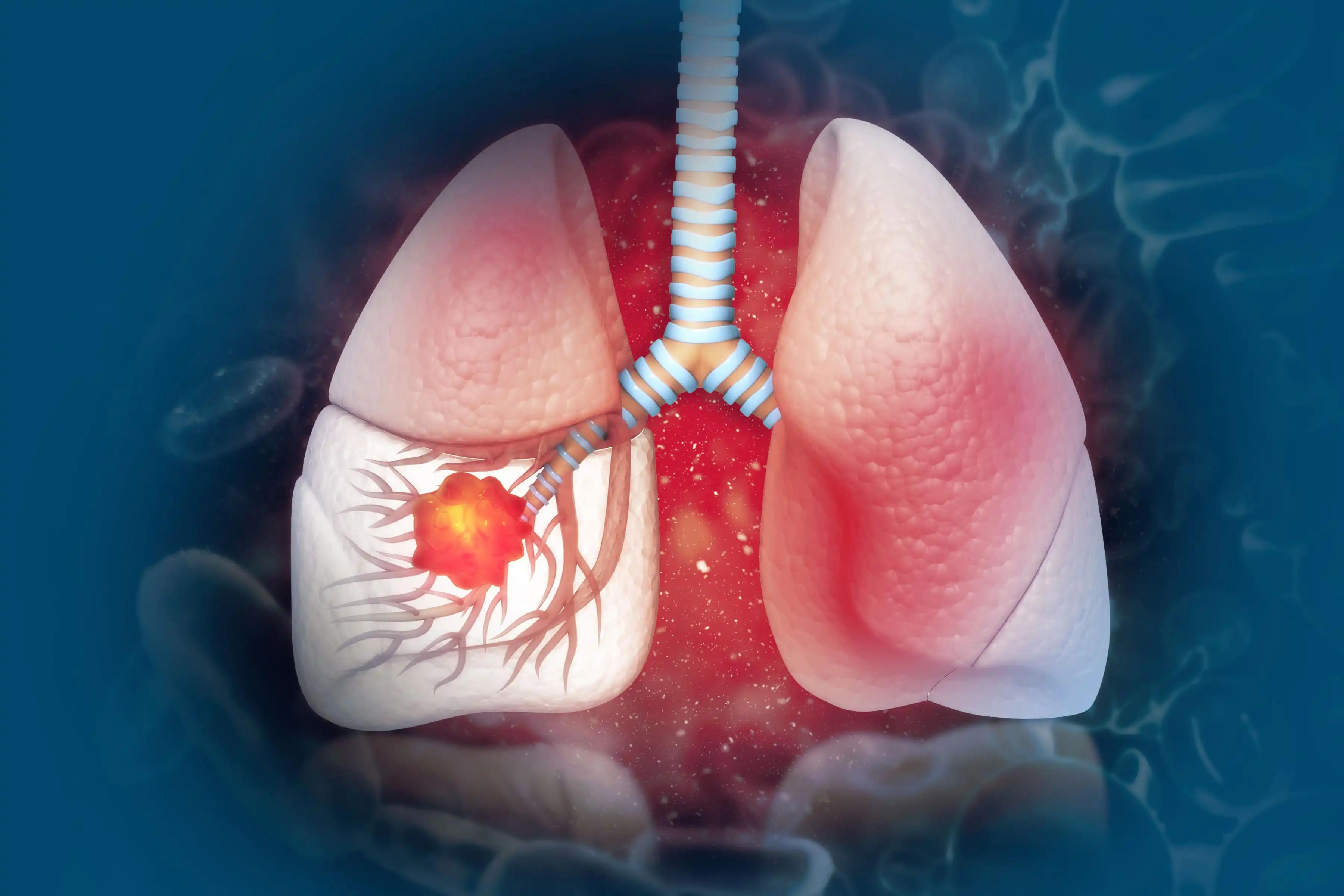KEY TAKEAWAYS
- The phase 2 trial aimed to investigate the antitumor activity and safety of lorlatinib in TKI naïve in patients with advanced ROS1-positive NSCLC.
- The primary endpoint was to determine ORR.
- Researchers noticed lorlatinib’s effectiveness and safety, supporting earlier treatment for ROS1-positive NSCLC.
ROS1 rearrangement is rare but an attractive therapeutic target in advanced non-small cell lung cancer (NSCLC). Currently, crizotinib, entrectinib, and reprotrectinib have been approved for ROS1-positive NSCLC. Lorlatinib is a potent, brain-penetrant, third-generation tyrosine kinase inhibitor (TKI) that targets ROS1 as well as ALK.
Beung Chul AHN and the team aimed to investigate the antitumor activity and safety of lorlatinib in TKI naïve, advanced ROS1-positive NSCLC.
They conducted a prospective multi-center, single-arm, phase II study that enrolled TKI-naïve patients diagnosed with histologically or cytologically confirmed advanced ROS1-positive NSCLC, presenting with an Eastern Cooperative Oncology Group performance status of 2 or less and having received one or no prior platinum-based chemotherapy. Lorlatinib 100mg once daily was administered orally in continuous 21-day cycles until disease progression, unacceptable toxicity, consent withdrawal, or death.
The primary endpoint assessed was the objective response rate (ORR), with secondary endpoints including progression-free survival (PFS), overall survival (OS), and safety. Sample size calculation employed a 2-stage design to evaluate the null hypothesis (40%) and the alternative hypothesis (60%), with type I error (α) level of 10% and type II error (β) of 0.20.
About 32 patients with ROS1-positive NSCLC were enrolled between June 03, 2019, and April 26, 2023. The median age was 60, with 63% females, and all (100%) had adenocarcinoma histology. Among them, 21 (66%) were treatment-naive, and 11 (34%) had previously received platinum-based chemotherapy. The median duration of follow-up for response was 15.6 months (Interquartile Range [IQR], 10.3–30.4). Objective responses were observed in 22 patients (69%; 95% confidence interval [CI], 52 to 83). Median PFS was 35.8 months (95% CI, Not Reached [NR] to NR), and OS was NR.
Among treatment-naive vs. previously treated patients, the objective response rates (ORR) were 81% vs. 46% (P = 0.042), and PFS was NR vs. 13.9 months (P = 0.25), respectively. The most common grade 3–4 treatment-related adverse events were hypertriglyceridemia (8 [25%] of 32 patients) and hypercholesterolemia (5 [16%]). No treatment-related deaths occurred.
The study concluded that lorlatinib demonstrated durable clinical activity in TKI-naïve, advanced ROS1-positive NSCLC, including patients with CNS metastases. Adverse events were predominantly low grade and manageable for long-term use. Given its limited treatment alternatives, lorlatinib may be considered for earlier intervention in ROS1-positive NSCLC treatment strategies.
The trial was sponsored by National Cancer Center, Korea.
Source: https://meetings.asco.org/abstracts-presentations/232887
Clinical Trial: https://clinicaltrials.gov/study/NCT03612154
AHN B. C., Kim Y. J., Kim D. W., et al. (2024). “Lorlatinib in TKI naïve, advanced ROS1-positive non-small-cell lung cancer: A multicenter, open-label, single-arm, phase 2 trial.” Presented at ASCO 2024. J Clin Oncol 42, 2024 (suppl 16; abstr 8519), 10.1200/JCO.2024.42.16_suppl.8519



